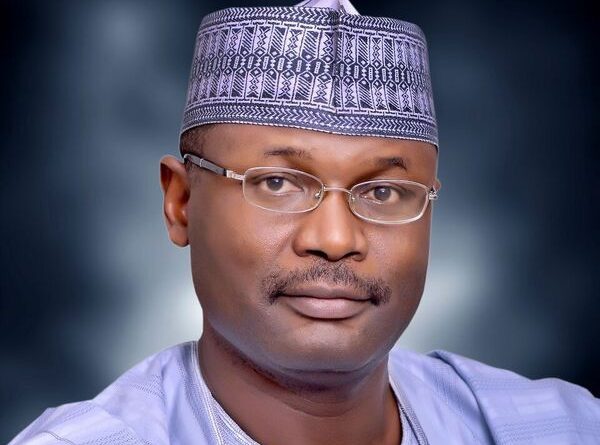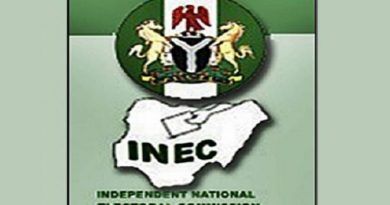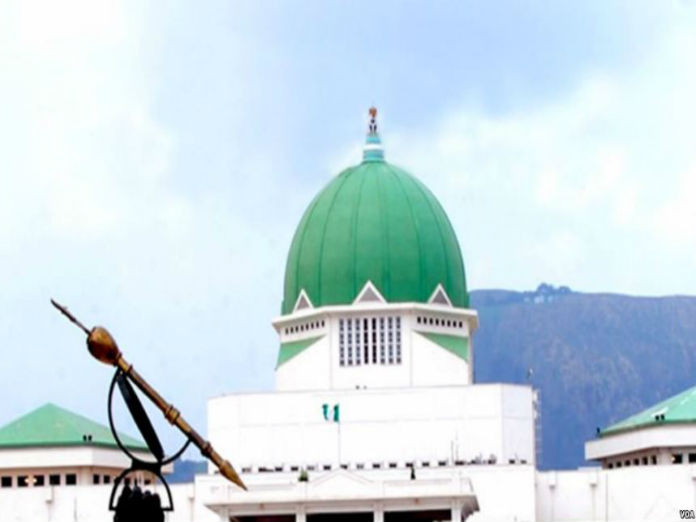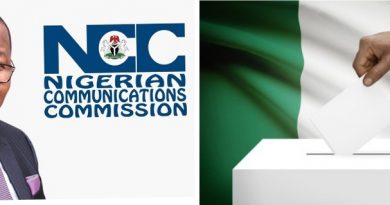2023 Elections: One million regular and ad hoc staff required.
Oru Leonard
INEC Chairman, Prof. Mahmoud Yakubu has disclosed that One million officials will be required to execute the 2023 general elections.
Prof. Yakubu made the disclosure at the first quarter meeting of the Forum of Secretary to the Government of the Federation (SGF) and Secretaries to State Governments (SSGs), in Abuja.
Yakubu, who spoke on the impact of elections on bureaucracy in Nigeria, said the one million officials would include both regular and ad hoc staff.
The INEC Chairman, represented by its National Commissioner, Sam Olumekun, lamented continued refusal of political parties to file their statutory returns to the commission, saying the umpire would ensure electoral outcome continued to be determined by legitimate votes.
Yakubu said: “The Impact of elections on the economy is two-fold: First, there is an unusually heavy budgetary demand on the country’s resources and secondly, several economic activities experience positive surges during elections.
“However, while we have scaled up our performance in tracking finances of political parties, we have not been receiving reports from political parties.
“Turning to the legal system, the impact of elections in Nigeria is perhaps, best illustrated by the quantum of court cases and legal challenges that multiply around the period. While the leap in court cases provides employment opportunities for citizens in the legal profession, the courts often get saturated with political cases to the detriment of civil, criminal and other cases that may be impacted by the old adage of “justice delayed is justice denied.”
He maintained that the impact of elections on the judicial bureaucracy in terms of the upsurge of cases was open to debate, added that INEC had more than 220 cases as fallouts of the conduct of elections.
Meanwhile, the Federal Government has disclosed plan to lobby states into creating additional ministries that would focus on humanitarian, disaster management and social development.
Stakeholders at the event, including the Minister of Humanitarian Affairs, Disaster Management and Social Development, Sadiya Farouq and Secretary to Government of the Federation, Boss Mustapha, were optimistic the nation would achieve the plan to reduce poverty across country.
See full text of INEC Chairman’s speech.
A KEYNOTE ADDRESS DELIVERED BY PROF MAHMOUD YAKUBU, INEC CHAIRMAN ON THE OCCASION OF FIRST QUARTER 2022 MEETING OF THE FORUM OF THE SECRETARY TO THE GOVERNMENT OF THE FEDERATION (SGF) WITH SECRETARIES TO STATE GOVERNMENTS (SSGS) HELD IN THE STATE HOUSE CONFERENCE HALL (FORMER BANQUET HALL) ON 7TH APRIL, 2022
PROTOCOL
It gives me a great joy to stand before you, eminent bureaucrats this morning to deliver a keynote address on the impact of elections on the bureaucracy in Nigeria as we prepare for another democratic transition elections in 2023.
Before I delve into the topic, I wish to convey the sincere apologies of the INEC chairman, Prof Mahmood Yakubu to you for not being able to be here in person to deliver this keynote address, this is due to other pressing matters that requires his attention.
This topic cannot come at a better time than now when our nation is gearing up for another democratic transition in 2023. The INEC which I represent here today requires all Nigerians to support her in this onerous assignment of delivering a free, fair, and credible and crisis free election going by the challenge posed by insecurity in our land today.
Ladies and gentlemen, it is no longer news to us that the Commission now has a new Electoral Act (Electoral Act 2022) which was recently accented to by the President. The new act is robust and will further strengthen the operations of the Commission in the delivery of its constitutional mandates. Upon the passage of the act, the Commission has rolled out the 2023 General Election time table and program of activities and it has began to discharge the activities outlined in the document as they unfolds. The Political Parties is scheduled for 4th April to 3rd June, 2022 and the last quarter of the Continuous Voter Registration will resume on 11th April and close on 30th June, 2022. The Commission has two off-seasons governorship elections in Ekiti and Osun States which will hold on 16th of June and 18th July, 2022 respectively.
In order to deepen the process, the Commission has carried out various innovations and activities including the expansion of voter assess to polling units in order to decongest the polling units and make the polling experience seamless. It has also introduced the use of technologies like; the creation of online portal for Continuous Voter Registrations and the in- person/ physical registrations using the INEC Enrollment Device (IVED), the online registrations/ Accreditation of Election observers, online submission of Nomination forms and list of Political Party Agents as well as the use of ( Bimodal Voters Accreditation System (BVAS) in the accreditation process in order to eliminate identity theft and INEC results viewing portal which allows the uploaded results from the polling units to be monitored real time by Nigerians and other critical stakeholders.
Having laid the preamble for this presentation, I consider it appropriate to detach the topic by defining the key terminologies in order to properly analyzed the topic and make it understandable. The word ‘Election’ in rudimentary terms means the democratic ways by which people choose their leaders who will govern them. The Independent National Electoral Commission (INEC) is saddled with the responsibilities of coordinating the process and activities that will give Nigerians a solid and credible platform to exercise their franchise during the elections within the ambit of law and international acceptable standards.
Bureaucracy has been variously defined by various scholars/groups as follows;
➢ the p
➢ Political Scientists sees bureaucracy as a group of specifically non-elected officials within a government or other institution that implements the rules, laws, ideas, and functions of their institution through “a system of administration marked by officials, red tape, and proliferation”.
➢ The German Sociologist, Max Weber (1864 -1920) defines bureaucracy as a highly structured, formalized and an impersonal organization. He believed that an organization must have a defined hierarchical structure with clear rules, regulations and lines of authority which govern it.
According to Max Weber, bureaucracy has the following characteristics:
➢ Specialization of labour.
➢ A formal set of rules and regulations.
➢ Well-defined hierarchy within the organization.
➢ Impersonality in the application of rules.
In essence, bureaucracy constitutes the most efficient and rational way in which human activity can be organized, hierarchies are necessary to maintain order, to maximize efficiency and to eliminate favoritism.
Nigeria experienced democratic elections in the pre-independence era up to the Republican elections of 1963. The nation adopted the American Presidential system in 1979 which was interrupted by military coups and counter coups, later on since 1999 to date, it is gladdening to note that the nation’s democracy continued to evolve.
Bureaucracy under the democratic experience has continued to be surrounded with so many fundamental historical issues that are unique to Nigeria. These issues are:
• The colonial heritage.
• The prevalent diarchy of the civil and the military bureaucracy for more than half of the over six decades of Nigeria’s independence.
• The inherited British Westminister parliamentary traditional dichotomy between politics and administration,
• The inherent powerful nature of bureaucracy,
• The threat to Nigerian nationhood,
• The intractable challenge of the Nigerian multi ethnic nationalities
• Competing for resources.
• Interference by the Political Class
Despite the myriad of challenges enumerated above among others, the impact of democratic elections on the bureaucracy in Nigeria cannot be over – emphasized. The remarkable of democracy in Nigeria since the commencement of this dispensation has influenced a number of remarkable reforms in the nation’s bureaucracy with a view to driving effectively government policies and programmes to grow every sector towards achieving nation – building.
The fact needs be stressed that credible elections engenders effective bureaucracy. Conversely, when elections are fraught with malpractices, the recruitment process of political office holders is negatively is impacted. In effect, public office holders may not have what it takes to put in place credible bureaucracy to better the lot of the ruled.
I wish to conclude my remark by sounding this note of advice to all of us seated here today bureaucrats; we must continue to uphold utmost professionalism at all times. This is necessary as political office holders may easily lure you into politics thereby politicizing the bureaucratic set-up and destroy the fabrics of the profession. Political patronage among civil and public servants has the potential to destroy the gains attained over the years.
I you all a very fruitful deliberations in your meeting.
Thank you all




